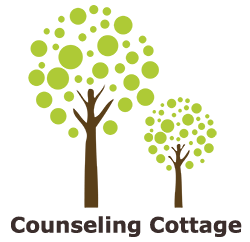Don't Put It Off
In all the years I have been a counselor working with children, teens, and young adults, I have noticed an important theme. The theme is children and teens were often struggling one, two or more years ago with the beginnings of a problem, professional help was not sought, and now the problem is severe.
Parents DID recognize these signs one, two or more years ago. But they decided to “wait and see.” They were waiting to see if the problem got better on its own, waiting to see if it was “just a phase”, waiting to see if maybe it wasn’t a real problem, waiting to see if the problem went away in the next school year, after the summer, after the holidays, waiting to see what happens. Sometimes parents focus on one aspect of a child or teen’s life that is going well, and that keeps them thinking, hoping, that things are OK when they may not be. For example: “I know he doesn’t really have any friends, but he’s getting all A’s in school!”
Sometimes one parent wants the child to see a counselor, but the other parent isn’t on board. They may not be on board because they don’t like the idea that their child needs counseling, or they think counseling is only for severe problems. So they wait. Very often, other important changes or events are happening in the family, and the child’s problems are put on the back burner.
Sometimes parents mention the idea of counseling to their child or teen, and if the child says they don’t want to go, they tell the child they don’t have to go now, but if things continue, they will have to go. This puts a negative spin on counseling from the start. In contrast, there are increasing numbers of children and teens asking their parents for counseling. They are reaching out for help, and this is a positive thing.
If you think your child or teen is having difficulties, either because you see signs that things are not as they should be, or you hear you child talking about things in a way that leaves you uncomfortable, it is beneficial to arrange for them to have a couple of counseling sessions to get professional feedback because it is better to deal with a smaller problem now than a larger, more serious problem later.
I am often asked by parents, “What should we tell (our child) about counseling? How do we tell them they will have counseling?” My recommendation is to wait until you have selected and met the counselor yourself as a parent. Then, you can let the child or teen know that you would like to seek help in dealing with (whatever the situation is) and that you have already met with the counselor. Tell the child or teen a couple of things about the counselor. Show them a picture of the counselor. Let them know that you want to support them any way you can, and that the counselor is there to help and support the family. Counseling should be discussed as something positive and supportive so that the child or teen will have a positive attitude from the start.
